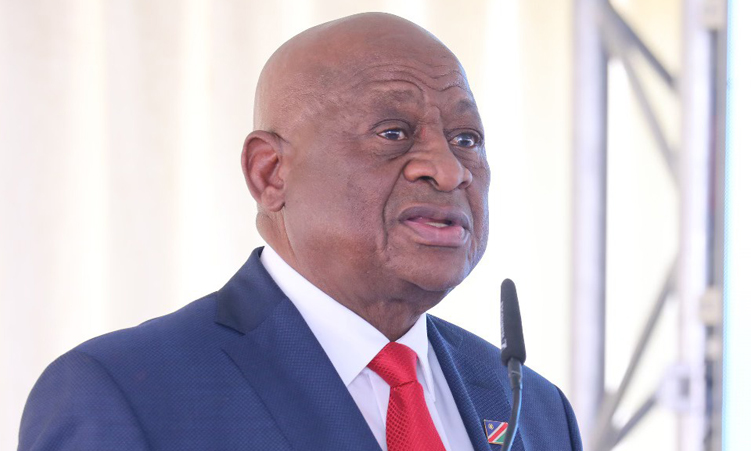Health and social services minister Kalumbi Shangula has called for immediate and collaborative action to address malnutrition in the country.
Speaking during a nutrition support visit at Gobabis on Thursday, Shangula highlighted the critical state of child malnutrition across several regions, including Omaheke.
“Recent data from the 2024 Namibia Standardised Monitoring and Assessment of Relief and Transition Survey indicates very high stunting rates in regions like Hardap, Omaheke and Omusati,” Shangula said.
He emphasised that these alarming figures pose a serious threat to achieving the Sustainable Development Goal of ending all forms of malnutrition by 2030.
Shangula further acknowledged the collaborative project titled, ‘Increasing Access To Quality Nutrition And Social Protection Services For Vulnerable Populations’, which includes women and children in the Omaheke, Khomas and Kunene regions, funded by the government of Japan and supported by the World Health Organisation (WHO).
“This initiative marks a pivotal step in combating malnutrition, with N$8.5 million allocated to extend nutrition interventions and enhance social protection services,” he said.
Shangula further said the significance of training healthcare workers helps manage severe and moderate wasting among children.
“Our approach focuses on building capacity through advanced mentoring and supportive supervision, aligning with the Baby Friendly Hospital Initiative,” he said.
Shangula reported that an outreach in August provided essential immunisations to 3 813 children, alongside Vitamin A supplementation and deworming services for over 2 600 children.
“These efforts are vital in preven ing diseases and improving nutrient absorption, thus, enhancing overall health outcomes,” he said.
According to Japan’s ambassador to Namibia Hisao Nishimaki, the Japanese government supported Namibia with approximately N$9.3 million for the period of January-December 2024.
“The government of Japan, in partnership with WHO Namibia and the health ministry, has consistently supported Namibia’s health sector with a contribution over US$1.5 million (approximately N$27 million) from 2019 to 2023 to improve nutrition and health for women and children, strengthen the protection of women and children against violence and increase access to quality healthcare services for vulnerable populations through outreach,” Nishimaki says.
This project aimed to reach over 34 681 vulnerable children under five and 15 795 women of reproductive age across the Omaheke, Khomas and Kunene regions, he adds.
Nishimaki notes that the project supports enhancing the healthcare system’s capacity to deliver quality nutritional services for women and children at both health facility and community levels.
“It is focused on strengthening the skills of healthcare and community health workers to effectively implement nutrition-related interventions.
“Additionally, the project targeted to train 150 service providers on the care and management of women and children subjected to violence, exploitation and abuse,” he adds.
Stay informed with The Namibian – your source for credible journalism. Get in-depth reporting and opinions for
only N$85 a month. Invest in journalism, invest in democracy –
Subscribe Now!










